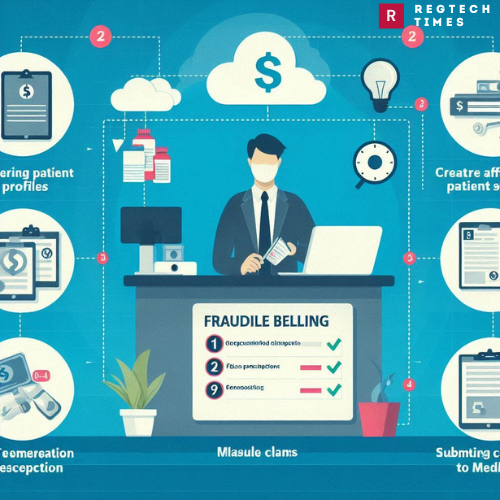In a significant crackdown on health care fraud, Paul Mansour, a 56-year-old pharmacist from Sierra Madre, California, has been sentenced to two years in prison for orchestrating a $1 million fraudulent scheme against Medicare. Paul Mansour, co-owner of Mansour Partners Inc., operating under the name Best Buy Drugs, exploited the health care system by submitting false claims for prescription drugs that were never dispensed to beneficiaries.
The Fraudulent Scheme of Paul Mansour
From January 2017 to July 2022, Paul Mansour engaged in deceptive practices by creating fake patient profiles within Best Buy Drugs’ digital filing system. These profiles were populated with fictitious names, dates of birth, and addresses. Paul Mansour then also fabricated prescriptions linked to these fake profiles. To legitimize the fraudulent activity, he submitted these false claims under the names of actual Best Buy Drugs patients, thereby billing Medicare for medications that were never provided.
This elaborate scheme allowed Paul Mansour to siphon off more than $1 million from Medicare, a federal health insurance program primarily serving individuals aged 65 and older. This fraudulent activity not only resulted in significant financial loss to the federal program but also undermined trust in the health care system.
Legal Proceedings and Sentencing
Paul Mansour pleaded guilty on April 5, 2023, to one count of health care fraud. The sentencing, delivered by Principal Deputy Assistant Attorney General Nicole M. Argentieri from the Justice Department’s Criminal Division, Acting Assistant Director Krysti Hawkins from the FBI’s Los Angeles Field Office, and Special Agent in Charge Timothy DeFrancesca from the Department of Health and Human Services Office of the Inspector General’s Los Angeles Regional Office, led to Paul Mansour receiving a two-year prison term.
The case was meticulously investigated by the FBI and HHS-OIG, reflecting the government’s commitment to combating health care fraud. Trial Attorney Matthew R. Belz from the Criminal Division’s Fraud Section led the prosecution, ensuring that justice was served in this significant case.
Impact and Broader Implications
Health care fraud is a severe offense with its far-reaching consequences. It not only leads to substantial financial losses but also impacts the quality and trust in the health care system. The Health Care Fraud Strike Force Program, established in March 2007, plays a critical role in addressing such fraud. This initiative has played a crucial role in prosecuting more than 5,400 individuals who collectively deceived federal health care programs and private insurers out of over $27 billion.
The Centers for Medicare & Medicaid Services (CMS), in collaboration with HHS-OIG, are taking robust measures to hold providers accountable and prevent such fraudulent schemes. The collaborative efforts aim to maintain the integrity of federal health care programs and ensure that beneficiaries receive the care they deserve.
The Importance of Vigilance and Accountability
This case highlights the critical need for vigilance and accountability within the health care sector. Health care providers and pharmacists are entrusted with the responsibility of ensuring that patients receive necessary and appropriate medications. Compromising this trust not only deceives the system but also puts patient care at risk.
The successful prosecution of Paul Mansour serves as a deterrent to other potential fraudsters. It highlights the rigorous investigative and prosecutorial efforts undertaken by federal agencies to combat health care fraud. The FBI, HHS-OIG, and the Justice Department’s Criminal Division work tirelessly to detect and prosecute fraudulent activities, safeguarding the integrity of health care programs.
The sentencing of Paul Mansour is a significant victory in the fight against health care fraud. This serves as a clear signal that fraudulent activities will face zero tolerance, ensuring accountability for those responsible. As federal agencies continue to strengthen their efforts, it is crucial for health care providers to adhere to ethical practices and for beneficiaries to remain vigilant against potential fraud.


